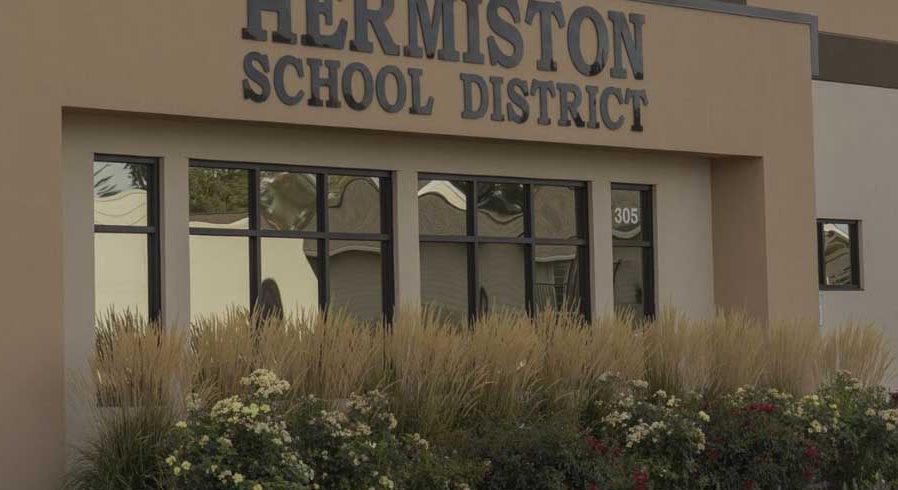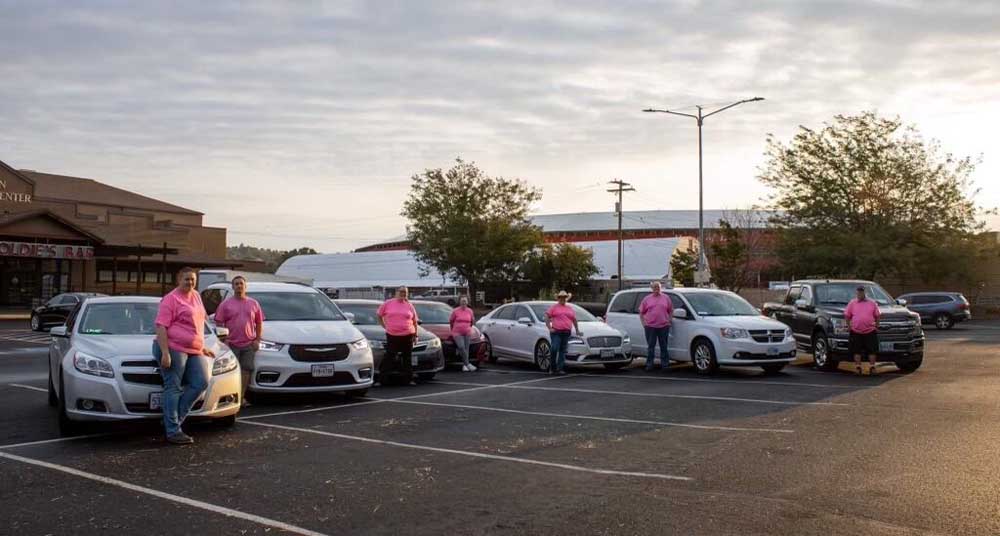Biodiesel plant opens in Odessa, Wash.
Published 12:15 pm Tuesday, September 15, 2009

- Mark Edens, director of the Odessa Public Development Authority, feels the crushed canola made in the initial presses of the Inland Empire Oilseeds facility during the company's grand opening Sept. 2. <BR><I>Photo contributed by Matthew Weaver/East Oregonian Publishing Co.</I>
Washington’s agriculture community turned out last week to celebrate the grand opening of an Odessa, Wash., biodiesel production company expected to help diversify the region’s economy.
Steve Starr, general manager of Inland Empire Oilseeds, said the company has produced biodiesel for several months, and recently commissioned a crush line, the final piece of its production plan.
Washington State Department of Agriculture Director Dan Newhouse addressed the crowd of officials, canola producers and customers gathered Sept. 2.
“We produce food, fiber and now we can truly say we produce fuel for the state and nation,” Newhouse said. “The state of Washington now has within its borders a destination for a new crop, basically. A plant like this that does everything, from the crushing to the fuel itself, gives farmers and consumers something we’ve been needing for a long time.”
Biofuel represents a solution to a national security issue, Newhouse said.
“The kinds of things that are going to take place because of this plant being here in Odessa help us to rely less on foreign sources of fossil fuels,” he said.
Biofuels draw criticism because they compete with the production of food, but Newhouse said byproducts go to producing protein.
“It proves we can do both food and fuel on our precious resource of land,” he said.
University of Idaho Adjunct Assistant Professor John Herkes said the Inland Empire oilseed project appears poised to succeed where many other biodiesel projects have failed due to a lack of community support.
Starr said the company gets its canola from Ag Ventures Northwest, processing about 30,000 tons this year and producing 3 million gallons of biodiesel.
The two companies are not directly linked, but Ag Ventures’ parent companies, Odessa Union Warehouse Cooperative and Reardan Grain Growers, Inc., also own 78 percent of Inland Empire Oilseed, Ag Ventures CEO Keith Bailey said.
The company also buys camelina oil from the other two crushers in Washington state, adding another 2.5 million gallons, Starr said.
The facility’s capacity is 8 million gallons, Starr said.
The company also produces about 20,000 tons of meal, which is sold around the region.
Washington State University Extension livestock nutrient management specialist Joe Harrison said canola meal has been a feedstuff in the Pacific Northwest for decades, with prices competitive with soybean meal when transportation costs are factored in.
“It’s a good protein source,” Harrison said. “The protein content is typically somewhere in the 38 to 40 percent range. It has a low fat content because they are pulling the fat out, usually for oil production or biodiesel. It has some fiber and is a reasonable source of calcium.”
The crop has been bred to lower the amount of glucosinolates, which created acid problems in livestock, Harrison said. It can be used as 10 percent of the grain mix for lactating cows.
Bailey said canola offers the region a rotation crop.
“In the past when we tried canola, the market was never very good for it, so it didn’t entice the farmers economically,” Bailey said. “With this operation here, we can actually afford to pay the farmers enough to make it economical for them and still be competitive in the fuel market.”
Ag Ventures buys all feedstocks for the Inland Empire Oilseed crushing line, purchasing between 3,000 and 5,000 tons within the state, Bailey said. It also buys from Northern Idaho and northeastern Oregon.
Starr and Bailey said they anticipate more canola acres being planted.
“We certainly hope so,” Bailey said. “With these prices right now, spring canola, even down in that 1,500 to 1,600 pounds-per-acre range, will be competitive with $4.50 wheat.”
Ritzville, Wash.-area farmer Chris Lyle grows canola as a rotation crop on one circle under deep-well irrigation north of Connell.
He said the facility gives canola a market that makes it worth growing.
The newest appointee to the Washington Canola Commission, Lyle said he thinks canola may become a new rotational crop in the dryland parts of Lincoln County with slightly higher rainfall, about 14 to 16 inches a year.
“There’s going to be an opportunity for an alternative to just growing wheat on wheat,” he said.
“It’s a crop that does not demand a lot of water at a time when we need to put water on our other crops.”
Matthew Weaver is based in Spokane. E-mail: mweaver@capitalpress.com.
Online: Inland Empire Oilseeds: www.inlandempireoilseeds.com





